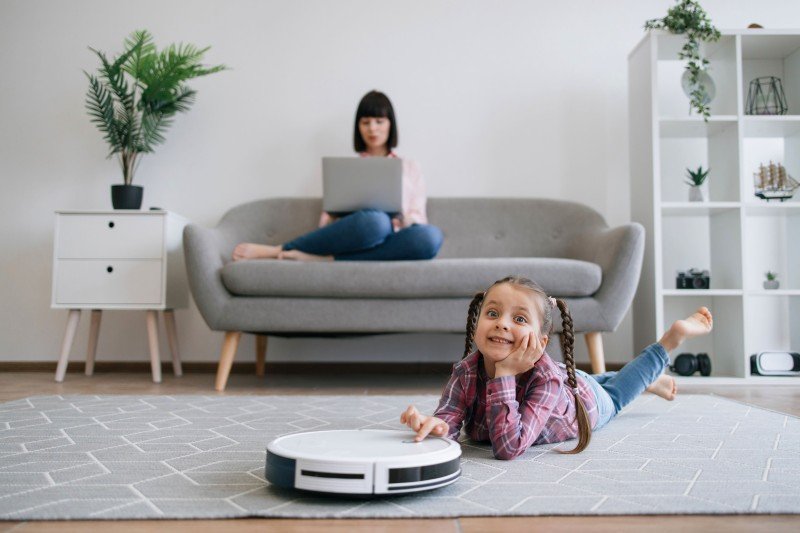
Robotic Vacuum Cleaner Comparison: The Future of Home Cleaning
Recently, robotic vacuum cleaners have actually transformed the way we maintain tidiness in our homes. With improvements in innovation and the incorporation of synthetic intelligence, these devices have developed from mere novelty products to vital family devices. This post provides an extensive comparison of a few of the leading robotic vacuum cleaners on the market, helping consumers make informed decisions when selecting a design that suits their needs.
Understanding Robotic Vacuum Cleaners
Robotic vacuum are autonomous makers designed to clean floorings immediately. Equipped with sensors, they navigate around barriers and change their cleaning paths for maximum effectiveness. The key features that separate different designs include suction power, battery life, app connection, navigation technology, and price.

Secret Features to Consider
When comparing robotic vacuum cleaner commercial vacuum cleaners, prospective purchasers should take into account the following aspects:
- Suction Power: Measured in Pascals (Pa), suction power figures out the effectiveness of getting dirt and particles.
- Battery Life: The length of time a vacuum can operate before needing a recharge considerably impacts its cleaning performance.
- Navigation Technology: Models might use basic random navigation or advanced mapping innovations (like LIDAR) that allow them to create a map of the home.
- Smart Features: Connectivity to mobile phone apps or smart home systems can enhance functionality and control.
- Filter Type: HEPA filters are suggested for allergy patients, as they trap irritants and improve air quality.
Comparison of Top Robotic Vacuum Cleaners
Below is a comparison table of a few of the very best auto vacuum robotic vacuum offered in 2023:
| Model | Suction Power (Pa) | Battery Life (min) | Navigation Technology | Smart Features | Price (GBP) |
|---|---|---|---|---|---|
| iRobot Roomba i7+ | 1700 | 75 | Smart mapping | App control, voice command | ₤ 949 |
| Roborock S7 | 2500 | 180 | LIDAR | App control, multi-floor | ₤ 649 |
| Neato D7 | 2000 | 120 | LIDAR | App control, zone cleaning | ₤ 599 |
| Ecovacs Deebot T10 | 3000 | 150 | Smart mapping | App control, space detection | ₤ 799 |
| Shark IQ robot vacuum cleaner best buy | 1200 | 90 | Random | App control, self-emptying | ₤ 399 |
Description of the Table
iRobot Roomba i7+: Known for its robust cleaning capability, it features smart mapping innovation that enables it to designate particular areas for cleaning. Its self-emptying feature is a plus for convenience.
Roborock S7: This model masters suction power and battery life, making it ideal for bigger homes. Its LIDAR technology assists develop an efficient cleaning course, and it can vacuum and mop concurrently.
Neato D7: The D-shape design permits much better corner cleaning, and it features strong suction power. Its LIDAR navigation allows it to map out cleaning locations precisely.
Ecovacs Deebot T10: Boasting the highest suction power and advanced navigation, this model can deal with multiple floors successfully. It's a versatile choice for homes with varying floor types.
Shark IQ self-cleaning robot vacuums: An affordable option that still uses smart functions. Its self-emptying ability and app integration make it a practical option for those trying to find a solid cleaning buddy without breaking the bank.
Advantages of Robotic Vacuum Cleaners
robotic vacuum cleaners (graph.org) provide many benefits that add to their rising appeal amongst customers:
- Time-Saving: Automated cleaning allows users to release up valuable time that can be spent on other activities.
- Convenience: Many designs can be arranged through apps to clean up at particular times, reducing manual effort.
- Accessibility: They can reach under furniture and in tight areas where traditional vacuums might struggle.
- Daily Maintenance: Regular usage of robotic vacuums can assist maintain a regularly clean environment, promoting better total home hygiene.
FAQs About Robotic Vacuum Cleaners
1. How often should I run my robotic vacuum?
It is recommended to run the robotic vacuum a minimum of 2-3 times a week to preserve cleanliness, though daily usage can be helpful, specifically in homes with family pets or high foot traffic.
2. Do robotic vacuums work on carpets?
Yes, many robotic vacuums are developed to deal with carpets, but effectiveness may vary based on the model's suction power and brush type. Look for models specifically pointed out as effective for carpets.
3. Can robotic vacuums tidy pet hair?
A lot of robotic vacuums can successfully choose up pet hair, but those with strong suction and tangle-free brush designs are especially well-suited for this job.
4. How do I maintain my robotic vacuum?
Regular upkeep consists of cleaning the brushes and sensing units, emptying the dustbin, and periodically replacing filters to make sure optimum performance.
5. Are robotic vacuums worth the financial investment?
While they tend to be more expensive than standard vacuums, the benefit, effectiveness, and time-saving elements make them a worthy investment for many homes.
The marketplace for robotic vacuum cleaners continues to expand as technology progresses, providing consumers a variety of alternatives to match different cleaning needs and spending plans. By carefully considering functions such as suction power, battery life, and smart abilities, users can choose a design that aligns with their way of life. Whether for benefit, ease of usage, or superior cleaning efficiency, robotic vacuums are undoubtedly reshaping the future of home cleaning.
📌 Three Greatest Moments In Robotic Vacuum Cleaner Comparison History
